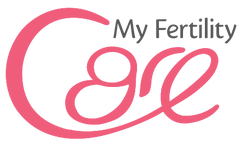Polycystic ovarian syndrome (PCOS)
What is PCOS?
|
Polycystic ovary syndrome (PCOS) is common, affecting 15% of women of reproductive age. The cause is not well understood, although genes (family history), foetal programming, childhood obesity, the environment, high calorie intake and inactivity have been proposed in the pathogenesis.
Most of the harmful effects of PCOS such as anovulation, miscarriages, diabetes, high cholesterol and heart disease are more likely to manifest when you gain weight. Women with PCOS are not infertile. They generally have significant number of eggs but their ovaries are disorganised. Ovulation can be random or sometimes absent. We now have a wide range of fertility treatment options to help women with PCOS conceive. |
|
Do I have PCOS?
|
The diagnosis of PCOS is a clinical diagnosis supported by biochemical evidence. The Rotterdam Criteria, which is the most common method of diagnosis gives a high probability of PCOS if:
It's easy to under or over-diagnose PCOS for several reasons.
|
Could I have something else?There are several endocrine conditions that mimic PCOS. These include:
|
Insulin Resistance
Most women with PCOS have a degree of insulin resistance, which leads to elevated (1) Luteinising hormone (LH), a pituitary hormone AND (2) testosterone, a hormone secreted by the ovaries and adrenal glands. Imbalances in these hormones are responsible for the disruption in ovulation in women with PCOS.
- Resistance to insulin is defined as high insulin concentrations in association with blood glucose concentrations that are normal or high.
- In clinical practice, insulin resistance is determined by clinical signs (eg. acanthosis nigrans) and biomarkers of insulin resistance (high LH, low SHBG, impaired glucose tolerance, diabetes).
- Among women with PCOS and obesity, up to 35 percent will develop impaired glucose tolerance (“pre-diabetes”) by the age of 40, and up to 10 percent will develop type 2 diabetes.
- Insulin resistance is potentially modifiable (see below).
Treatment
Accept the things you can't change
CHANGE the things you CAN
- We inherit our genes from our parents. However, we make individual choices (be it conscious or sub-conscious) about food, physical activity, fitness, body weight, sleep and stress.
- PCOS is a condition that is managed but not cured. The commitment to being healthy needs to be made early and lifelong.
- Low GI (glycaemic index) food is healthy for you and makes you feel better by sustaining and stabilising your energy levels throughout the day. It can help with weight and skin breakouts. High GI food (example junk food and soft drinks) delivers erratic energy levels and often makes you feel hungry sooner.
Lifestyle change
- Most of the metabolic problems (insulin resistance, irregular periods, pre-diabetes, abnormal lipids, fatty liver disease and cardiovascular risk) resolve or become more manageable when you have a normal body habitus.
- If you are overweight, losing as little as 5% of weight will significantly reduce your insulin resistance.
- It takes time to see results on the scales. Trust that you are making a difference to your metabolism and chance of pregnancy. Over months, you may see your menstrual cycles become more regular (thereby ovulation more likely), clarity in your complexion and improved energy levels.
Medications and targeted therapy
- Oligomenorrhoea, hirsutism, infertility, pre diabetes, diabetes in pregnancy and cardiovascular disease are all very important concerns and are managed differently.
- For some of these conditions, specific medications are available
Other
- Genetic
- Chemotherapy or radiotherapy
- Environmental
- Anabolic steroids (testosterone)
- Cigarette smoking
- Marijuana
- Plastics
- chronic illness
- Medications
- Advanced age (DNA fragmentation is more common in men over 50)
- Erectile dysfunction
- Retrograde ejaculation
- Unexplained Infertility
Key Points
|
|
|
|
|
Management is focused on what's important to you now and prevention of complications later in life |
|
|
|
|



